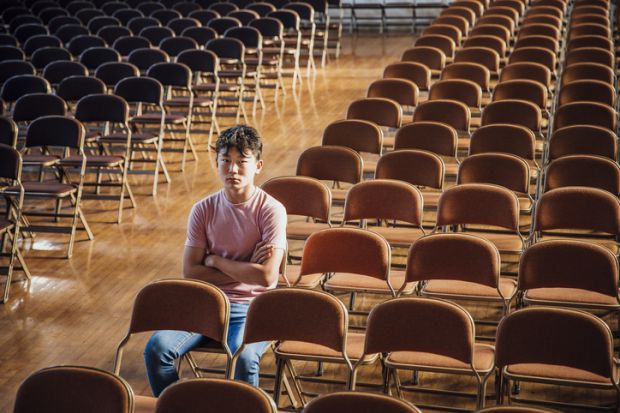Scholars have condemned a proposal that would give Hong Kong’s leading university the power to start disciplinary proceedings against any student accused of bringing the institution into “disrepute”.
If enacted, it would give the University of Hong Kong (HKU) the ability to mete out punishments ranging from “reprimands and fines to suspension or even expulsion”, according to local press.
The move is the latest flashpoint over academic freedom at the university. HKU prompted outcry from academics and students in December, when it removed the Pillar of Shame statue commemorating the victims of the Tiananmen Square massacre. During 2021, several of Hong Kong’s institutions severed ties with their student unions amid concerns about the compatibility of political activism with a new national security law.
HKU’s recent proposal takes the clampdown a step further, academics said. They feared the university’s proposal could give it an easy means of punishing students who criticise its policies.
“It used to be that educators protected their students at all cost, not give up on them, fine them, deny them their education and diplomas, because of political reasons,” said Charles Mok, a visiting scholar at Stanford University’s Global Digital Policy Indicator and previously an elected member of Hong Kong’s Legislative Council.
Alvin Cheung, a postdoctoral fellow at McGill University and a researcher affiliated with the New York University’s US-Asia Law Institute, was struck by the irony of the move.
“If the HKU council is genuinely concerned about upholding the reputation of the university, its members should take a long hard look in the mirror,” he told Times Higher Education.
Already, moves by university leadership had negatively affected its reputation, he said. For instance, in 2015, its governing council voted 12 to eight against hiring pro-democracy law scholar Johannes Chan as pro vice-chancellor, for what Dr Cheung said “quite clearly appear to be partisan political reasons”.
If enacted, the rule would mirror Hong Kong’s national security legislation, which scholars have criticised for being a catchall for targeting those with dissenting political views.
Steven Lewis, a professor of China studies and associate director of the Chao Center for Asian Studies at Rice University, called the proposal “very concerning”.
“In addition to suppressing free discussion in the classroom and on campus, I worry that it will also make it harder to do social survey research, something HKU university scholars are known for,” he said.
Like Dr Cheung, he worried that other institutions would follow suit. “HKU is [Hong Kong’s] most famous and influential higher education institution, and so if it succeeds in passing it will indeed put pressure on other, less influential institutions to also toe the line on suppressing free political discussion on campus,” Professor Lewis said.
HKU declined to tell media whether the proposal had passed but said that “the newly added provision concerning students’ conduct will help safeguard the university’s reputation by plugging the gap in the current statute”.
Register to continue
Why register?
- Registration is free and only takes a moment
- Once registered, you can read 3 articles a month
- Sign up for our newsletter
Subscribe
Or subscribe for unlimited access to:
- Unlimited access to news, views, insights & reviews
- Digital editions
- Digital access to THE’s university and college rankings analysis
Already registered or a current subscriber? Login








